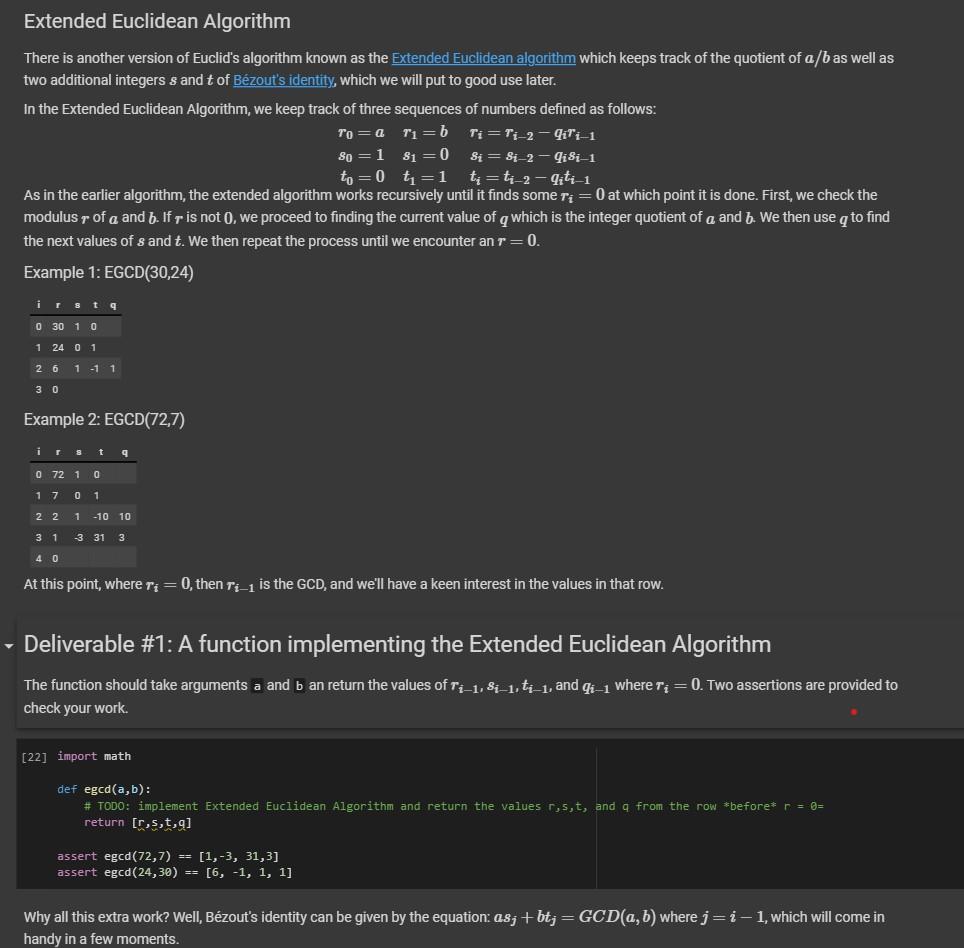Home /
Expert Answers /
Computer Science /
can-someone-help-with-this-program-in-python-there-is-another-version-of-euclid-39-s-algorithm-kn-pa322
(Solved): Can someone help with this program in python There is another version of Euclid's algorithm kn ...
Can someone help with this program in python
There is another version of Euclid's algorithm known as the Extended Euclidean algorithm which keeps track of the quotient of as well as two additional integers and of Bézout's identity, which we will put to good use later. In the Extended Euclidean Algorithm, we keep track of three sequences of numbers defined as follows: As in the earlier algorithm, the extended algorithm works recursively until it finds some at which point it is done. First, we check the modulus of and . If is not , we proceed to finding the current value of which is the integer quotient of and . We then use to find the next values of and . We then repeat the process until we encounter an . Example 1: Example 2: At this point, where , then is the , and we'll have a keen interest in the values in that row. Deliverable \#1: A function implementing the Extended Euclidean Algorithm The function should take arguments and an return the values of , and where . Two assertions are provided to check your work. [22] import math def egcd : \# TODO: implement Extended Euclidean Algorithm and return the values r, , and from the row before* return assert assert Why all this extra work? Well, Bézout's identity can be given by the equation: where , which will come in handy in a few moments.
Expert Answer
The Extended Euclidean Algorithm is a widely u
